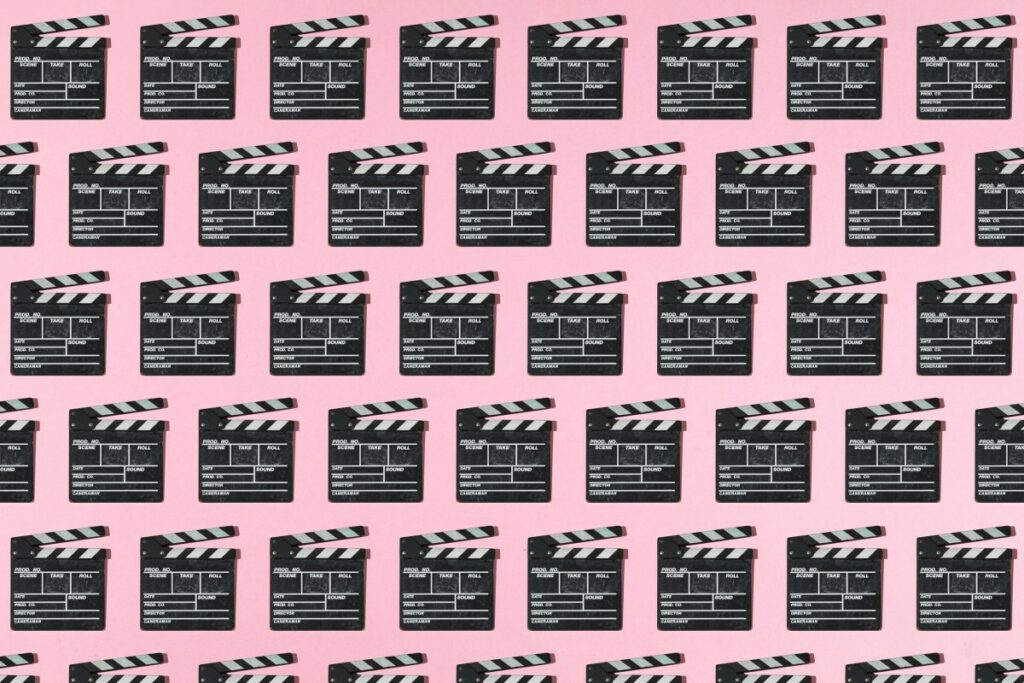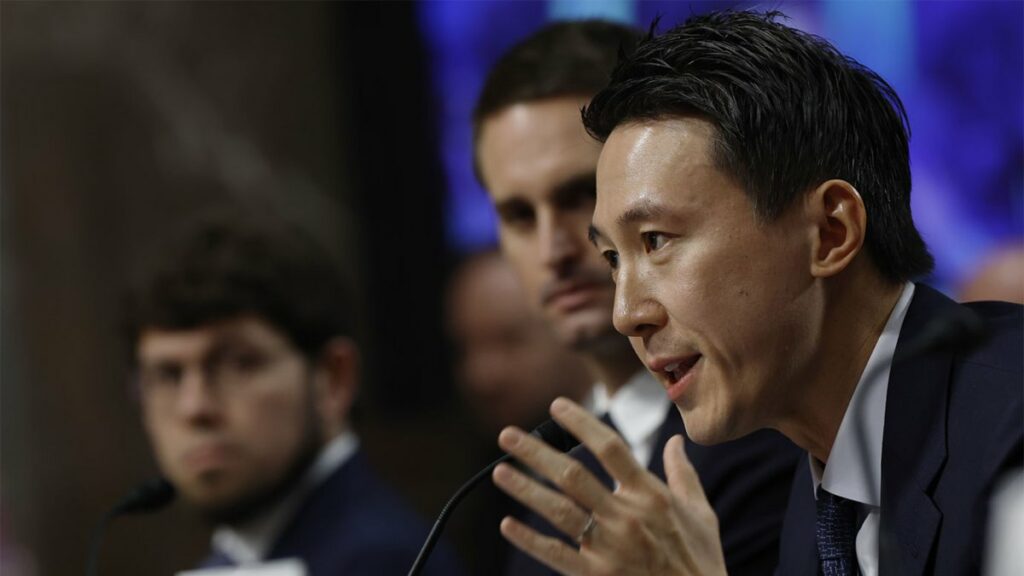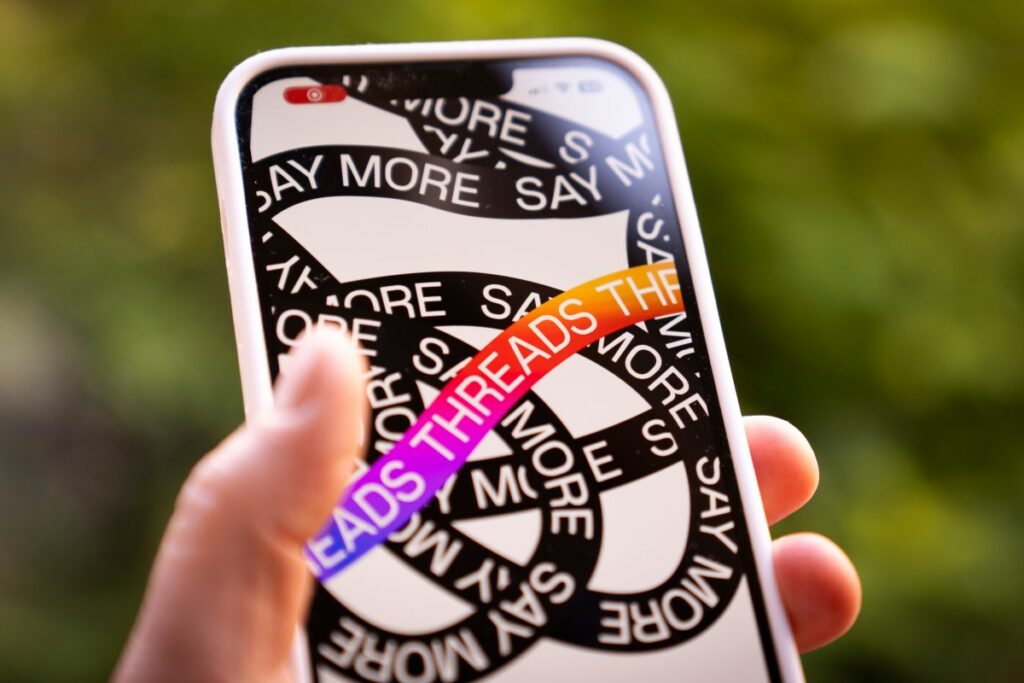“Day 25 of starting over my whole entire life,” Raegan Lynch narrates over a short video. “Right now, I’m wandering around the city I just moved to, in a country I’d never seen, all by myself after my relationship ended, and I had to leave my old life behind.”
It’s a pretty enticing hook, which is why Lynch starts every video this way. She pulls us along as she navigates British grocery aisles – which are evidently quite different from those in the States – and bravely compliments a stranger’s outfit in a feeble attempt to make a new friend.
Within a few months of posting her first video, Lynch has grown her accounts to over 588,000 followers on Instagram and 432,000 on TikTok. But what made Lynch’s story go viral has more to do with her crisp storytelling and attention to cinematography than her catastrophic breakup. These episodic, web series-esque videos are bringing a new spin to short-form content, pushing TikTok from raw “get ready with me” routines into more ambitious territory.
@raeganlynchh Day 25!! #startingover #breakup #movingon ♬ original sound – raegan
As recently as last year, TikTok thrived off the idea that anyone could be a star – like Reesa Teesa from the “Who TF did I marry?” series, you could go viral just by telling your craziest stories while you drive to and from work. Viewers seemed to gravitate toward this off-the-cuff, casual style, where the videos feel like a friend is telling you a story on FaceTime. Even brands had shifted their marketing style, exchanging studio shoots for simple footage of someone talking into the camera.
In the past, holding a clip-on microphone in front of your mouth would seem unprofessional, but in that moment, a more carefree nature was the point.
Now, a year after Reesa Teesa blew up, short-form video viewers are starting to crave something different and more cinematic than these more casual clips.
As viewers tune in to see if Lynch is settling into her new life, a scripted microdrama called “The Group Chat” has made its way from TikTok to the Today Show.
The creator behind The Group Chat, Sydney Jo Robinson, plays each character in a group of friends as they navigate a tenuous text conversation. The mundanity of this drama is what makes it so fun. The Group Chat is about a group of friends who planned a girls’ night, but one friend asked to bring her boyfriend, and chaos ensues. The series has now entered its second season after the first season racked up nearly 100 million views across five TikTok videos.
@thatgirlsydjo The Group Chat: a series #groupchat #friends #drama #tea ♬ original sound – Sydney Jo
The serialized show garnered so much attention that, now, instead of making their ads blend in with casual content, brands like Alo Yoga and Little Caesar’s are producing higher-budget micro dramas to capitalize on the trend.
Like Robinson, Nicholas Flannery, who has 5.5 million TikTok followers, plays each character in his serialized TikTok dramas. He takes inspiration from cliché plots in popular movies, like a series playing off the prompt, “every movie where the high-powered CEO has an affair with a younger man.”
@nicholas_flannery Oop not the work trip where they have isolated time to bond!! Poor husband he barely gets to see her lol – I wonder how the conference will go, maybe they’ll just have tension for the time being… #babygirl #harrisdickinson #nicolekidman #thriller #cheaters ♬ original sound – Nicholas Flannery
But while Flannery and Robinson tell complete stories across several videos, each clip can stand alone on its own. That way, if a video from the middle of the series surfaces on people’s For You Pages, they’ll still be drawn in.
Before the rise of vertical video, scripted web series on YouTube were successful enough to spin out into cult-favorite TV shows like “Broad City,” “Insecure,” and “Letterkenny.” When YouTube tried to mimic this success on its own, however, its original content initiatives didn’t catch on.
But trends ebb and flow, and now, creators like Lynch, Robinson, and Flannery are reviving the concept of the web series for a new generation. They’re not without direct competition from streamers themselves.
Streaming platforms like Rakuten Viki have cemented themselves in Asian markets with short, serialized video series with timed comments. More recently, microdrama apps like DramaBox and ReelShort have boomed in the U.S.
According to app store data provider Appfigures, DramaBox and ReelShort have made $99 million and $152 million from in-app purchases in the U.S. each, respectively, reflecting a 203% and a 233% year-over-year growth from the same time frame in 2024. Since the start of 2025, each app has earned at least 1 million downloads a month in the U.S.
As Americans’ viewing habits trend more towards social video or bite-sized entertainment, rather than traditional television shows, there could be more demand for this scripted, crisply-edited content.
TikTok is also rumored to be looking into scripted video, and the streaming network Peacock trained four TikTokers through a creator accelerator to make four new TV shows. American viewers seem to be enjoying this kind of social-first, scripted comedy, even when they have rejected this kind of media before. (Remember Quibi?).
TikTok’s audience will never fully turn its back on “get ready with me” style videos, which are broadly accessible and duplicable for novice creators, but short-form video could pave the way for a renaissance of the web series.


